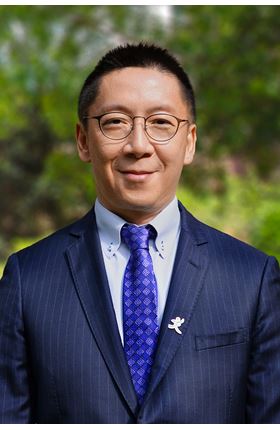Head Message


The Department of Rehabilitation Sciences at PolyU, established in 1978, has consistently nurtured exceptional occupational therapists and physiotherapists, positioning itself as a premier academic entity not only in Asia but also across Belt and Road nations and globally. We pride ourselves on fostering a learning environment that unites the brightest academic minds with experienced clinical associates, creating an incubator for distinguished talents, and generating the backbone of society's rehabilitation practitioners.
Our BSc (Hons) in Physiotherapy and BSc (Hons) in Occupational Therapy programmes are highly sought after at PolyU, drawing students with the second and third highest average admission DSE scores in 2024. These remain the sole UGC-funded undergraduate programmes training physiotherapists and occupational therapists, accepting 150 and 100 students respectively each year. Responding to the increasing social demand of rehabilitation services, we offer accelerated entry-level Master's degrees in Physiotherapy and Occupational Therapy for those with prior bachelor's degrees.
On the postgraduate front, we have cultivated a reputation for excellence through our taught master's degree programmes and our research degree programmes at MPhil and PhD levels, contributing significantly to the rehabilitation services and global scientific research communities.
Our teaching approach seamlessly incorporates scientific research, offering students the unique opportunity to be part of world-class research efforts under the guidance of senior professors. We take immense pride in our internationally recognized scientific research achievements.
Our Rehabilitation Clinic (Physiotherapy) and Tam Wing Fan Rehabilitation Service Centre (Occupational Therapy) offer advanced, personalised rehabilitation services to the public and also function as a nucleus for clinical education, training, and research initiatives.
With our forthcoming relocation to PolyU's new campus in Ho Man Tin by 2027, our department is poised for a significant enhancement in our teaching, research, and service capabilities thanks to upgraded laboratory facilities and expanded capacities.
I would like to express my sincerest gratitude to all of our dedicated faculty members for striving in delivering the best world-class education and research in rehabilitation sciences, and our students in succussing our over 45 years of excellence. May RS continues to be an ever-rising star, shining on the lives of people with or without disabilities.
Professor Marco PANG
Shun Hing Education and Charity Fund Professor in Rehabilitation Sciences,
Chair Professor of Neurorehabilitation and Head, Department of Rehabilitation Sciences, DoUBSN




